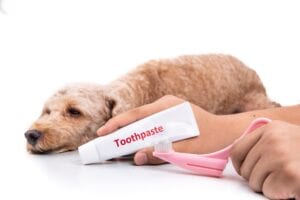Learn from top veterinarians how to provide proper dental care to your cat
Good dental health for cats ensures their health and wellbeing. This prevents them from developing periodontal diseases which can be painful and require extensive treatment. Wild cats have a natural mechanism of keeping their teeth clean by chewing on bones and carcasses. Domestic cats usually don’t consume raw meat so often. Hence, proactive dental care should be administered to ensure good dental health.
A healthy dental regimen begins with regular examination of the cat’s teeth and gum. Since cats cannot communicate their pains and discomforts, the owners have to be vigilant for any telltale signs. Let us take a more detailed look at the important steps you should follow to ensure your cat’s dental health.
Examine Your Cat’s Mouth Regularly
The first step of feline dental hygiene is to examine your cat’s mouth regularly. Watch out for the following telltale signs which are indicative of certain underlying dental problems:
- Yellow and chipping teeth mean plaque and tartar formation on the teeth. Partially black teeth indicate dental cavities.
- Red, swollen and bleeding gums are indicative of periodontal diseases. Consult a vet if you find sores or lesions on the gums.
- Ulcers, swelling, bumps, or lesions on the back and inside of the mouth can be indicative of mouth cancer.
- Foul breath is a sign of bodily infection. The infection can be in the mouth or anywhere else in the body. If bad breath continues, it can be indicative of rotting gums.
- Excessive drooling, pawing at the face, inability to swallow, or shifts in eating patterns can also be due to dental problems.
Brush Your Cat’s Teeth Regularly
 As a cat owner, you must brush your cat’s teeth regularly. This will ensure long-term protection against dental ailments. Follow these tips for getting optimum results:
As a cat owner, you must brush your cat’s teeth regularly. This will ensure long-term protection against dental ailments. Follow these tips for getting optimum results:
- Cats don’t enjoy getting their teeth brushed. Hence, it is important to get your cat accustomed to brushing from a young age. Use your finger or cotton swab to gently massage your cat’s teeth and gums. Brushing your cat’s mouth for 2-3 minutes at night will help get rid of the debris and plaque.
- Look up special toothbrushes for cats. Purchase one that has soft bristles. Buy a toothbrush that you can wear over your finger. It will give you more control.
- Use specially manufactured fluoride-free toothpaste for your cat. Don’t use human toothpaste for your cat as it contains high levels of fluoride which, if consumed, can make your cat severely ill.
- When brushing, hold your cat gently from behind and tilt its head backward. Lift the chin up, open the mouth and brush carefully.
Brushing is the first step to keeping your cat’s mouth clean and healthy. Along with that, practice the following dental care tips:
- Massage your cat’s gums after every brushing session. This will keep the blood flowing and remove any plaque which may have accumulated over the gums.
- Use vet-recommended special dental formulas for keeping the teeth strong and healthy. These special formulas often contain important compounds such as Vit E, taurine, antiseptics, and selenium.
- Use dental sprays that can be sprayed into the cat’s mouth. They contain antiseptics that keep the mouth free from plaque, tartar, and cavities. Dental sprays can compensate for irregularities in the brushing routine.
- Get your cat a dental checkup once a year. The vet will point out any dental irregularities and they can be rectified at the spot. Opt for professional dental cleanings once a year. They will keep the teeth clean and remove plaque from teeth and gums.
Contact Autumn Trails and Veterinary Center for professional dental services for your cat. They are located in Charlottesville, VA.

